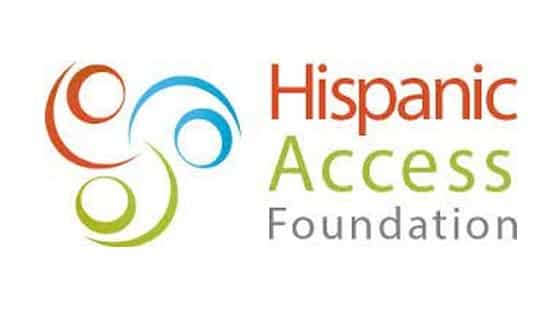
The report titled “10 Ways Access to Nature Can Bolster Biodiversity, Communities, and Climate” was presented by the Hispanic Access Foundation.
“All over the world, leaders must redouble efforts in the built and natural environment to better suit the needs of the biosphere and the people who rely on it,” said Shanna Edberg, author of the report and the director of conservation programs at Hispanic Access Foundation. “Access to nature is the lens through which we can make these investments in an equitable manner. When nature access for all is attained, the result is better-off communities, better-off ecosystems and a more stable climate, with more buy-in necessary to maintain the improvements.”
The report comes at a time when momentum is growing around the world to address the climate crisis. It establishes clear examples centered on restoring, regenerating, and conserving biodiversity while also increasing equitable access to nature and mitigating climate change for both governments and communities at every level. The solutions presented are a win-win for the multiple crises we face and provide a guide for policymakers, advocates and community leaders.
The 10 solutions presented in the report are:
- Indigenous land and water management – Evidence shows that when Indigenous communities have enforced rights and decision-making powers over their own lands, their traditional ecological knowledge and practices manage the lands and waters sustainably. Indigenous stewardship is essential to meeting the world’s climate goals and maintaining the Amazon’s role in absorbing and storing carbon.
- Greening urban space – With the increasing urbanization of the human population, solutions for nature access in urban contexts should be among the highest priorities for policymakers to hit the nexus of biodiversity, climate gains, and societal benefits. Cities are home to a surprising array of biodiversity. Yet, destruction of green space in urban areas is one of the greatest threats to global biodiversity.
- Green infrastructure – Green infrastructure in nature-deprived communities provides an equitable, sustainable, and urban-appropriate alternative to stormwater and rain management that also provides economic and nature access benefits.
- Parks and protected areas – The location of parks in communities—or the lack thereof—is a major facet of inequitable access to nature. Increasing parkland where it is lacking is therefore a powerful solution to bridging the gap in nature access, and bringing all of the biodiversity, climate, and other benefits of nearby nature.
- Landscaping for biodiversity and natural resource conservation – Landscaping and restructuring of backyards, homes, churches, hospitals, eldercare facilities, corporate and college campuses, parks, and even cemeteries is another important approach to increasing biodiversity, access to nature, and absorption of climate change-causing pollutants at the community and individual level.
- Cultivation: Urban gardens, food forests, and pollinators – Encouraging regenerative cultivation practices in urban and developed areas is another way to facilitate nature access for underserved communities, while also reducing greenhouse gasses, improving biodiversity, and bringing access to nutritious food.
- Agricultural and pastoral lands – Solutions for nature access, biodiversity, and climate improvements also exist in “working lands”—agricultural and pastoral spaces. While not densely populated like urban areas, the potential human benefits to these areas are important to consider for environmental justice reasons.
- Clean waterways and watersheds – Access to clean waterways, such as urban streams and waterfronts, is another powerful lever for changes that restore biodiversity, provide access to nature, and ameliorate the climate crisis. However, many communities around the world are cut off from their local waterways, because the rivers have been dammed, forced underground, diverted, or overdrawn.
- Healthy, accessible ocean and coasts – A recent report found only 10 percent of the U.S. coastline is covered by strong legal protections for public access. Yet even legally guaranteed public access does not ensure a conserved, pollution-free or well-managed public nature area.
- Cleanup from oil and gas wells – Fossil fuel extraction, including new oil and gas leasing and permitting, is counterproductive to facilitating equitable access to nature. Moreover, the fossil fuel industry is the primary cause of climate change and poses an immediate threat to the health and well-being of millions of people, local wildlife, and ecosystems.
“For environmental conservation to remain relevant for generations to come, we cannot afford the false binary of choosing people or nature,” said Pedro Hernández, co-author of the report. “This whitepaper proudly asserts and proves that there are many paths forward to building a more inclusive, effective, and long-lasting conservation movement that can meet our environment’s needs while undoing deeply entrenched social inequities.”
In addition to introducing the 10 solutions for nature access, biodiversity and the climate, the report analyzes what it means to have “access to nature” and its relation to the biodiversity crisis.
The full report is available online at http://hispanicaccess.org/images/AccesstoNature.pdf.










